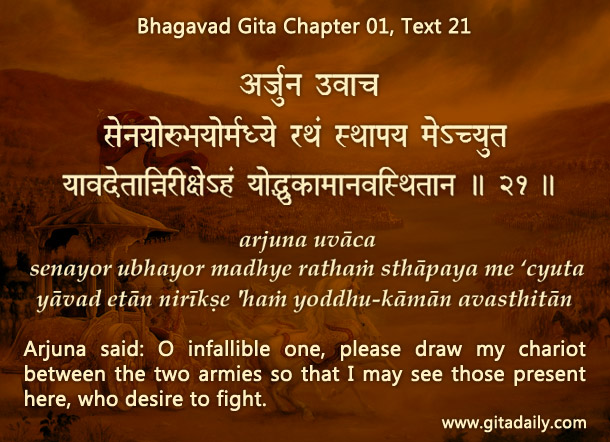Suppose a person steering a ship sees something small and shiny ahead. They overlook it as unimportant, not knowing that it is the tip of an iceberg large enough to wreck the entire ship. In many such situations, what the eye sees is far less important than what the I (the seer) needs to see.
Arjuna faced a similar situation when he saw the two armies assembled on the battlefield at Kurukshetra. Actually, he had put himself in that situation by making the unusual request to his charioteer Krishna that his chariot be taken between the two armies (Bhagavad-gita 01.21). From that central vantage point, he saw his many relatives and countless others, all bound to die in the upcoming war. That sight petrified him, robbing his will to fight (01.46).
But there were many things his eye didn’t see: the atrocities that the Kauravas had repeatedly committed against his family; the animosities, driven by envy and greed, that they held against him; the adversities that would befall the world if such unscrupulous people gained unfettered power.
Did he not know these reasons that made the war inevitable and even essential? He knew; the Pandavas, along with their well-wishers, had pondered the war’s pros and cons, as delineated in the Mahabharata’s previous book, the Udyoga-parva. After due deliberation, they had concluded the cost of fighting, though high, would be dwarfed by the eventual cost of not fighting.
Yet this carefully contemplated conclusion got wiped out of his memory as soon as he started counting solely on the eye. Such is the delusion we all may fall into if we over-depend on our eyes.
One-sentence summary:
What we don’t see may matter far more than what we see — don’t depend solely on the eye, lest it delude the I.
Think it over:
- How did Arjuna’s eyes ambush him?
- Contemplate at least one incident from your life wherein what you didn’t see mattered more than what you saw.
- Consider a major decision you need to take. Are there factors you aren’t seeing? How can you see them?
***
01.21: Please draw my chariot between the two armies so that I may see those present here, who desire to fight.


Leave A Comment